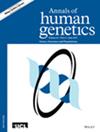No significant association between SNPs in the CLOCK and ADH4 genes and susceptibility to cluster headaches: A systematic review and meta-analysis
Abstract
Background
The circadian locomotor output cycles kaput (CLOCK) gene and the alcohol dehydrogenase 4 (ADH4) gene are promising candidates for susceptibility to cluster headaches (CH). Associations of the three single nucleotide polymorphisms (SNPs)—CLOCK SNP rs1801260 and ADH4 SNPs rs1800759, and rs1126671—with CH were studied previously, but the results were inconsistent.
Methods
Associations between the three SNPs (rs1801260, rs1126671, and rs1800759) and CH risk were separately assessed by pooled odds ratios (ORs) along with 95% confidence intervals (95% CIs) based on five different genetic models. Methodological quality was assessed using the Newcastle–Ottawa Quality Assessment Scale (NOS). All statistical analyses were carried out with RevMan 5.3 software.
Results
Eight studies involving 1437 CH patients and 2541 healthy controls were selected for quantitative synthesis, from five studies on CLOCK rs1801260, five on ADH4 rs1800759, and three on ADH4 rs1126671. Our pooled data did not support associations between the three SNPs (rs1801260 in the CLOCK gene, rs1800759 and rs1126671 in the ADH4 gene) and susceptibility to CH (rs1801260: OR 1.10, 95% CI: 0.95–1.28; p = 0.19; rs1800759: OR 1.06, 95% CI: 0.93–1.22; p = 0.37; and rs1126671: OR 1.09, 95% CI: 0.92–1.28; p = 0.32).
Conclusion
We found no significant associations between the three SNPs (rs1801260 in the CLOCK gene and rs1800759 and rs1126671 in the ADH4 gene) and the susceptibility to CH across both Caucasian and Asian ethnicities in our meta-analysis.

 求助内容:
求助内容: 应助结果提醒方式:
应助结果提醒方式:


